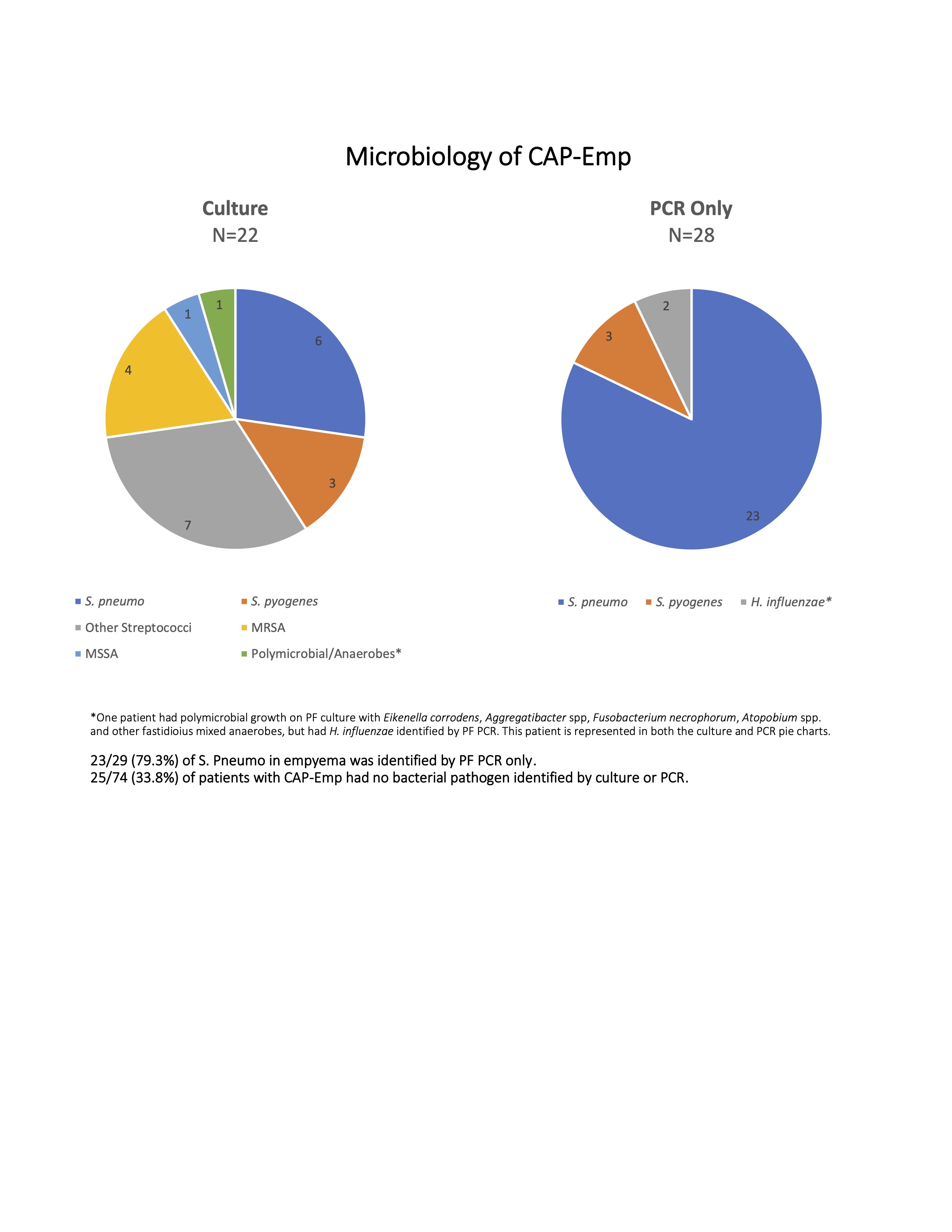Infectious Diseases
Session: Infectious Diseases 3
134 - Use of Binax NOW S. Pneumoniae antigen assay in pleural fluid for etiologic diagnosis of parapneumonic empyema in children
Sunday, May 5, 2024
3:30 PM - 6:00 PM ET
Poster Number: 134
Publication Number: 134.1827
Publication Number: 134.1827

Drew Crawford, MD (he/him/his)
Resident Physician
University of California, Irvine, School of Medicine
Orange, California, United States
Presenting Author(s)
Background: Severe pneumococcal pneumonia, often complicated by pleural empyema (CAP-Emp), remains a major cause of morbidity and mortality in children worldwide. Timely pathogen identification decreases broad spectrum antibiotic utilization and length of hospital stay. Blood (5%) and pleural fluid (PF) (15%) cultures are often negative. Polymerase chain reaction (PCR) in PF is not frequently available in developing countries but has increased microbiological diagnosis of CAP-Emp. Binax NowTM Streptococcus pneumoniae (S. pneumo) assay (Binax) is an inexpensive and easy to perform test but has only been validated in urine and cerebrospinal fluid.
Objective: To evaluate use of Binax S. Pneumo assay in PF samples for identification of S. pneumo as etiologic diagnosis of CAP-Emp in children.
Design/Methods: Seventy-five healthy pediatric patients with CAP-Emp were enrolled from 12/2018 – 08/2023. Blood and PF cultures were performed as standard of care on 74 patients, and 73 had urine collected. PF was sent for PCR testing using Biofire® FilmArray and pneumococcal PCR. PF and urine samples were tested on site using Binax.
Results: Of the 74 patients tested, S. pneumo (n=29; 39%) was identified by culture in 6 patients (PF 2, blood 2, blood and PF 2), and by PF PCR in 23 patients. Other pathogens were identified in 20 patients (27%) and no pathogen was identified in 25 patients (34%) (Fig1). Binax in PF was positive in 36 patients – 29 S. pneumo, 3 with other pathogens and 4 with no bacterial pathogen identified (sensitivity 100%, specificity 84%, negative predictive value 100%). Urine Binax was positive in 32 patients – 25 S. pneumo, 7 with no pathogen identified (sensitivity 89%, specificity 84% negative predictive value 93%).
Conclusion(s): Binax testing in PF showed high sensitivity, specificity, and negative predictive value for rapid detection of S. pneumo in CA-Emp. Binax in PF may be of significant value in directing appropriate antibiotic therapy in resource poor countries.

.jpg)
